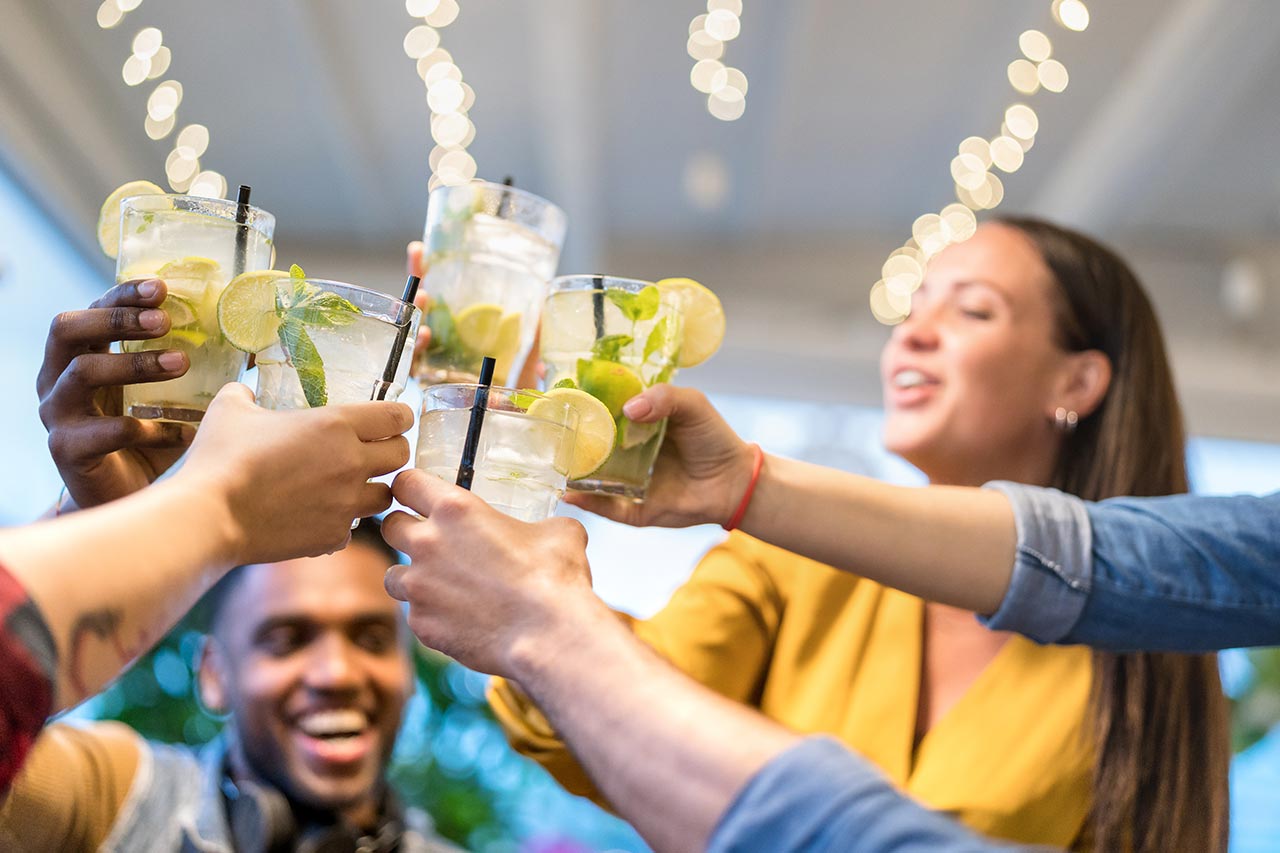The soft drinks market: 4 boiling trends

The soft drinks market is one of the most innovative food markets, driven by new consumer demands and the integration of new raw materials. Alcimed provides you with its view of this sector, as major industrialists and start-ups are bursting with dynamism, like cross innovations at SIAL and beyond.
Naturalness and functionality: persistent consumer trends that intersect and reinvent themselves!
If in 2018 we were already referring to consumers in search of naturalness and “clean label“, in 2020 consumers will remain as much, if not more, attentive to the quality and nutritional profile of their favorite drinks. With the additional pressure of the sugar tax now imposed by many countries, products are now available in light, aspartame-free and fruit-enriched versions. Danone, which in 2018 announced a massive organic plan for its water category, now has several organic product lines, including its emblematic Volvic and Evian brands, and doesn’t intend to stop there. To meet the expectations of increasingly demanding consumers, the new recipes promise zero additives, zero preservatives and zero sugar.
Learn more about the clean label approach in the food industry >
As consumers are more attentive to the health impact of their consumption, they also focus on functionality. New stars in this segment are cannabidiol (CBD) to boost the immune system and reduce stress, dihydromyricetin (EHD) as a remedy for over-drinking and ashwagandha to manage stress and anxiety.
Make way for the new generation of energy drinks!
Energy drinks are not to be outdone in the functional drinks segment and are also looking for a new look. Like dietary supplements that exploit the wide range of plants, energy drinks use natural substitutes such as guarana and ginseng to replace taurine and appeal to customers looking for healthier options. Many start-ups are riding this wave to bring out new innovative and organic products. French start-up Nossa! is exploiting the virtues of the acai berry to offer organic drinks. Matahi Juice produces organic and natural energizing fruit juices based on baobab trees. Start-up Runa is developing recipes based on caffeine-rich guayusa leaves. Club Maté energy drinks have been stars in Berlin for many years. Based on Yerba. Mate, naturally rich in caffeine but low in sugar, the drink is nicknamed “Organic Red Bull” by fans.
Fermented drinks: the new magic potion for foodistas
Kombucha, Kefir, Kvas,… These healthy drinks, worthy descendants of mead (“the nectar of the gods” based on water and fermented honey), have already replaced the steaming cup of coffee of Californians. And if home-made recipes and kits for making these fermented drinks yourself are developing, so are the varieties on the shelves! The Namaste water kefir drink was the winner at the last SIAL Innovation Paris. Korea, an expert in fermentation, also presented a sparkling fruit vinegar-based drink: the “Fermented Vinegar Water” from the company For Mind Body Spirit Choice. A tempting market in which the ex-start-up founded by a high school student, GT’s Living Food, now a “small” Kombucha manufacturer, is valued at over $900 million. A trend that has not gone unnoticed by the two giants Coca Cola and PepsiCo. While PepsiCo got its hands on Kevita, a brand of probiotic drinks, Coca Cola acquired Organic & Raw Trading Co, the Australian manufacturer of an organic brand of Kombucha. So coffee or fermented drink?
Waters : the category goes plant-based and flavoured
Bottled water accounts for more than a quarter of the world market for non-alcoholic beverages and is one of the sector’s most dynamic markets in terms of sales. Whether plant-based waters or flavored waters, manufacturers continue to innovate. Coconut waters have invaded the shelves among plant-based waters. They are flavored, like the Coco Libre brand and its grapefruit and cucumber versions, or Vita Coco and its lemon/ginger versions. Other plant-based waters try their luck, like cactus water or birch water. For example, the Absolutely Wild brand, also noticed at SIAL innovation, offers a birch water rich in antioxidants, minerals and trace elements. Other companies prefer to play on the flavorings of the water, such as Waterdrop, which offers small, compressed cubes of fruits and plants that dissolve in the water to give it taste. Finally, the big brands also rely on flavorings with ranges such as Oasis O’verger, the new fruity water reduced in sugar from Orangina Suntory, or Contrex Green, an organic water that plays the originality card with its herbal Mate infused version.
The development of alternative beverages is based on solid fundamentals, in response to the ever-increasing demand from consumers for products considered beneficial to their health and natural (e.g. with fewer sugars or preservatives). A multitude of plant bases, often exotic, are tested to meet these demands. Their large-scale production raises a series of questions for manufacturers: how to reconcile scale-up, quality and “start-up” brand identity? Also, how to ensure the sourcing and logistics of exotic raw materials, while ensuring an acceptable environmental balance sheet for consumers? Finally, in the context of the post-COVID economic crisis, how resilient will this new offer be? Many of these new products are premium products, and they are likely to suffer from consumer choices oriented towards basic necessities, limiting the growth of the category. In view of these issues, several strategic development options are open in these markets, which need to be anticipated.
About the authors,
Maylis, Consultant and Mathieu, Project Manager in Alcimed’s Agri-food team in France
Do you have an exploration project?
Our explorers are ready to discuss it with you